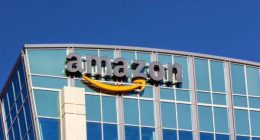SpaceX, the prominent private space exploration agencies, had been looking to complete its first-ever crewed mission to space sometime late next year. But a string of recent explosive events have affected the company’s plans and it has today officially announced a delay in the planned flight of its Dragon vehicle – which will carry NASA astronauts to and from the International Space Station.
The first-ever crewed flight of the Dragon capsule is now expected to happen in May of 2018, mentions NASA in its official statement. It further adds that a test flight of the capsule – without humans on board – will take place towards the end of 2017, in November.
This announcement from NASA comes on the heels of the investigation going on to find the exact cause of the explosion of the Falcon 9 booster, which was carrying Facebook’s Internet.org satellite. The booster as well as the satellite was blown into pieces with the anomaly most likely being the cryogenic helium tank – coupled with the liquid oxygen fuel. The investigation of the explosion by SpaceX (and outside) researchers is currently in final stages and we should know the root cause of the same in the coming weeks.
This explosion has only led to a minor changes in flight timelines and has still has not deterred the legendary visionary Elon Musk from achieving his space exploration ambitions. In a statement dispensed to multiple sources, a SpaceX spokesperson says,
As this investigation has been conducted, our Commercial Crew team has continued to work closely with NASA and is completing all planned milestones for this period.
We are carefully assessing our designs, systems, and processes taking into account the lessons learned and corrective actions identified. Our schedule reflects the additional time needed for this assessment and implementation.
Also, the explosion of the Falcon 9 has NASA worried sick about the safety of the crew of astronauts which will travel in the Dragon capsule. According to WSJ, the space agency believes that SpaceX’s last-minute fueling process for the boosters is dangerous and a committee has been assigned to review the practice. SpaceX itself is working on further examining and making necessary changes to the fueling process for a better and safer result in future flights – including the upcoming Mars missions.
In addition, the private space company has recently announced that work for the next flight is in full swing and the Falcon 9 will take it first flight after the blast in the coming weeks i.e January. In addition, SpaceX has recently also bagged a multi-million dollar contract to launch one of their Earth science satellites. This also puts the company in competition against Boeing, who is also planning to conduct its crewed mission along the same schedule in 2018.





